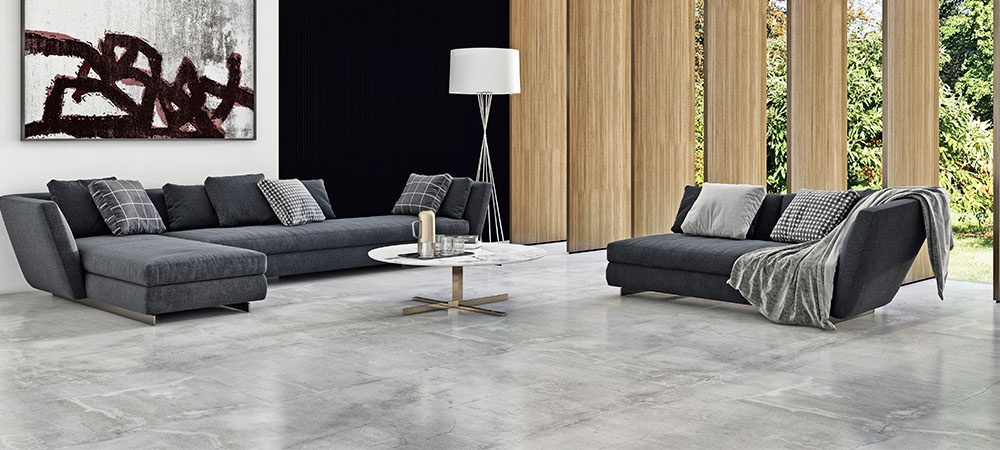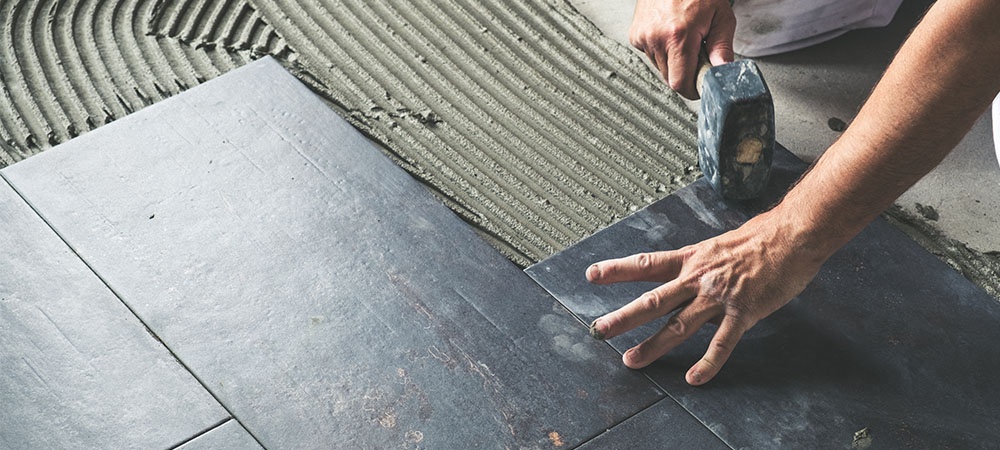Tiles are among many Canadian homeowners’ most preferred flooring materials. They are durable, stain-resistant, waterproof, and easy to maintain. Tiles are also affordable for those who want to add beauty and long-term value to their homes.
But all these benefits come at a cost many factors determine. An average Canadian homeowner spends between $1,500 and $2,400 to tile a 120-square foot space, including tiles. This rate brings the tiling cost to $13 and $20 per square foot.
So, what determines the actual cost of tiling a floor? How can you save on the overall tiling cost if you have a tight budget? We answer all these questions in this post’s remaining paragraphs. Keep reading to learn and benefit more.
Factors Determining Floor Tiling Cost
The actual cost of tiling a floor depends on numerous factors that vary among homeowners. These drivers determine how much you spend buying the tiles and installation charges. This section examines these driving factors more profoundly.
1. Labor
Labor is a key factor determining the actual cost of tiling a floor in your house. If you hire a professional home contractor, prepare to spend between $3 and $15 per square foot on labor. This figure comes to between $60 and $120 if the contractor charges per hour.
Depending on your preparation, labor costs might cover other areas besides installation. For instance, you might pay more if the contractor removes old tiles. The installer will also charge you more if they do most of the preparations in the installation area. Lastly, labor charges may also increase if the installation location requires repairs before fixing the tiles.
2. Installation Difficulty
The ease or difficulty of installing tiles also determines the overall price. For example, you will pay more if the installation site has a complex outlay because the contractor’s team will spend more time there.
Additionally, some tiles are more challenging to install than others. Typical examples are mosaic and custom tiles that take more time and energy to install than other types.
3. Area Preparation
The amount of your installation site’s preparation time and work adds to your overall cost. Installing tiles on a smooth and even floor requires less time and minimal preparations than on old, uneven floors.
Removing or replacing floors before installing tiles is another factor that increases your overall project cost. Therefore, ask your contractor to clarify if their estimate includes the price of removing old and installing new tiles.
4. Tile Type
The type of tiles you use also determines the overall price you pay for their installation. Before undertaking your tiling project, you should consider the tiles’ installation location, strength, and quality.
5. Tile Material
The type of tiling materials you use also affects your project’s overall cost. The reason is that different materials cost more per square foot than others. Here are sample price variations for three popular tile materials.
- Natural stone
Natural stone tiles cost between $5 and $35 per square foot. These tiles are durable and cut to fit your installation space. They also provide a unique natural look.
- Ceramic
Ceramic is another popular tiling material you can use. It costs between $0.50 and $7 per square foot for indoor tiling. This material is more cost-effective, although not as durable as porcelain. You will also spend more time on this material if you install it on a cement floor than on a wooden one.
Moreover, ceramic resists denting, staining, and scratching. It maintains its color even when you expose it to direct sunlight.
- Porcelain
Porcelain is another common tile material you can use to floor your house. It costs between $3 and $10 per square foot for indoor tiling. Using it for outdoor tiling will cost you $35 per square foot.
Also, the porcelain’s thickness determines the amount of money you will pay for it. Thick porcelain tiles are cheaper than thinner ones because the latter undergo a different process.
6. Installation Site
Your installation site also determines your project’s overall price. For example, installing tiles in a high-moisture location with direct water contact requires you to buy non-porous tiles. That means that the more water and moisture-resistant the tiles, the more expensive they will cost you.
7. Your Home’s Location
Your home’s geographical location also determines how much cash you will spend on your tiling project. Densely populated urban suburbs typically have high living costs that directly affect labor charges. Also, locations near coastal regions have higher humidity levels that make it more difficult to install tiles, raising the prices higher.
8. Subfloor Repairs
Lastly, you will pay more money for your tile flooring project if your house requires subfloor repairs. If you have a concrete subfloor that needs resurfacing, you will pay between $3 and $10 per square foot. If the same floor needs repairs, you will spend an extra $40 to $65 per square foot to fix it.
Your chosen contractor will spend more time and materials to level and smooth the area before installation. They will have to fill holes and cracks before the floor dries and gets ready for installation. All these factors combined raise your project’s overall cost.

Tips to Save on Tiling Costs
While many factors influence the overall cost of installing tile floors, numerous tactics are also available to lower them. This section shares practical insights to help you reduce the prices to fit your budget.
-
Use Bigger Tiles
You can save cash on your tiling flooring projects using bigger tiles. The reason is that bigger tiles are easier to install than smaller ones. They take less time to fix, thus lowering the amount of time your contractor needs to work.
-
Install Tiles in Selected Areas
You don’t need to install tiles everywhere if you have a tight budget. Instead, you may choose specific floor areas you feel need tiling or limit them to specific rooms in your house.
-
Shop Around
Shopping around for materials is another way of saving on your project’s overall costs. You will be shocked at how much you can save by taking a few extra hours shopping before deciding to buy tiles.
-
Use Simple Designs
Using simple flooring designs is another secret to saving money if you have a tight budget. Complex designs will cost you more money than standard installation because they require additional expertise and time.
-
Surplus
You can save money on your tiling projects by buying at least a 10% to 15% surplus of tiles. This overage ensures that you have sufficient tiles to replace damaged tiles during installation. Additionally, the extra tiles can be replaced if breaking or cracking occurs in the future.
Don’t forget that your chosen tiles may run out of production in the next decade. But if they don’t, most likely, their colors won’t match perfectly. Thus, keeping a surplus is a wise idea.
-
Demolish Old Floors Yourself
Don’t fear ripping off old floor tiles if you have the skills, time, and energy to do it. Removing and disposing of this junk will save you some of the labor costs.
-
Get Multiple Quotes
Lastly, get several quotations before choosing a home renovator to tile your floor. This move gives you a good estimate of what to expect to avoid losing money on an unnecessarily expensive contractor.
Critical Questions to Ask a Floor Tiling Contractor Before Hiring Them
Have you found a prospective contractor you feel is the best bet for your next floor tiling project? Don’t engage the installer before grilling them. Asking the right questions is beneficial since it helps you uncover many things that could save you future problems. Here are some of the top questions to shoot at a prospective contractor.
- Do you have happy clients you serve that can recommend your services?
If they can show you the happy homeowners they have served, you can rest assured you will get a good deal.
- How long have you been tiling floors?
This question helps you understand how much experience the contractor has.
- Is your company bonded and insured?
Getting an honest answer to this question helps you relax, knowing that the professional’s insurer will bear any liabilities.
- What does your estimate include?
Get all the facts to avoid bumping into surprise last-minute charges you didn’t plan for.
- What kind of warranty does your company offer?
Understanding this fact lets you rest assured of a secure fallback if problems arise after the installation process.
- How much time do you need to complete my project?
Understanding project timelines enables you to estimate how much you’ll spend because the contractor will charge you for their time.
- Do you base your labor charges on time or square footage?
Understanding this enables you to do your budget and better understand your project’s overall cost.

Let’s Help You Tile Your Floor Today
You are abreast with all the facts you need to know about the cost of tiling a floor. Our doors are open to help you tile your home most cost-effectively. Don’t hesitate to call Bayfield Flooring today for a free quote and consultation.

